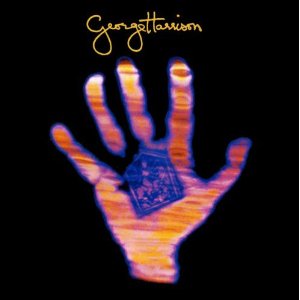Video: 'Living in the Material World (1973) [Full Album] - George...' (first 11 clips constitute original album)
(Saturday, June 23, 1973) — Living in the Material World, the fourth studio album by ex-Beatle George Harrison, peaked at #1 on today’s Billboard 200 albums chart for five weeks (June 23/30, July 7/14/21, 1973).
As the follow-up to 1970s critically acclaimed All Things Must Pass and his pioneering charity project, the Concert for Bangladesh, it was among the most highly anticipated releases of that year.
The album was certified gold by the Recording Industry Association of America two days after release, on its way to becoming Harrison’s second number 1 album in the United States, and produced the international hit “Give Me Love (Give Me Peace on Earth).”
It also topped album charts in Canada and Australia and reached number 2 in Britain.
Living in the Material World is notable for the uncompromising lyrical content of its songs, reflecting Harrison’s struggle for spiritual enlightenment against his status as a superstar, as well as for what many commentators consider to be the finest guitar and vocal performances of his career.
In contrast with All Things Must Pass, Harrison scaled down the production for Material World, using a core group of musicians comprising Nicky Hopkins, Gary Wright, Klaus Voormann, and Jim Keltner.
Fellow former Beatle Ringo Starr, John Barham, and Indian classical musician Zakir Hussain were among the album’s other contributors.
Upon release, Rolling Stone described it as a “pop classic,” a work that “stands alone as an article of faith, miraculous in its radiance”.
Most contemporary reviewers consider Living in the Material World to be a worthy successor to All Things Must Pass, even if it inevitably falls short of Harrison’s grand opus.
Author Simon Leng refers to the album as a “forgotten blockbuster,” representing “the close of an age, the last offering of the Beatles’ London era.”

